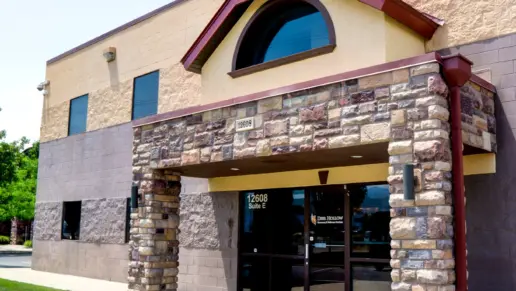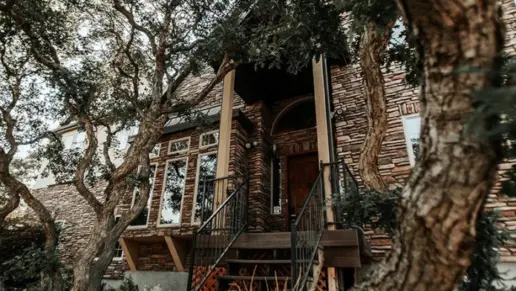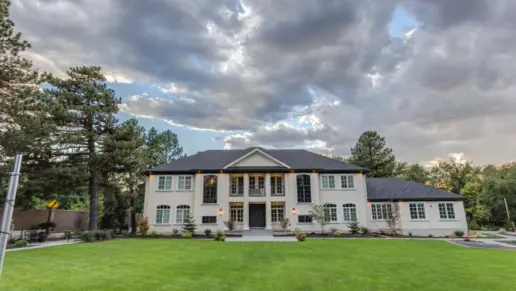The therapy staff is so invested in your success, they help me a lot and because of they i was able to renew my life. The facility is clean, beautiful and feels like home.
About Willow Tree Recovery
Willow Tree Recovery offers dual-diagnosis drug and alcohol addiction treatment for individuals in Pleasant Grove, Utah. They also provide valuable community resources, such as referrals, psychological services, and family support services.
Addiction-related services offered at Willow Tree Recovery include mental health assessment and counseling, residential drug and alcohol rehab, and aftercare.
Mental health assessments evaluate an individual’s symptoms to determine the severity of substance use disorder and the presence of any co-occurring mental health disorders. The clinician uses this information to create a customized treatment plan, which may include individual, group, and/or family counseling.
Residential treatment involves staying at a treatment facility for 30 days or longer, depending on the severity of substance use disorder. The treatment program begins with an assessment to determine individual needs, which informs an individualized treatment plan. Typically, individuals can expect a range of evidence-based interventions such as individual and group counseling, psychoeducation, relapse prevention, and skill building.
Most addiction treatment programs have a comprehensive aftercare plan which includes relapse prevention strategies, recovery activities, and membership to an alumni program for on-going support.
Rehab Score
Gallery
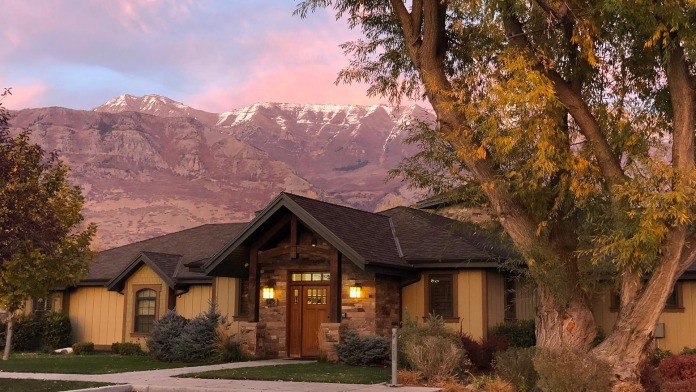
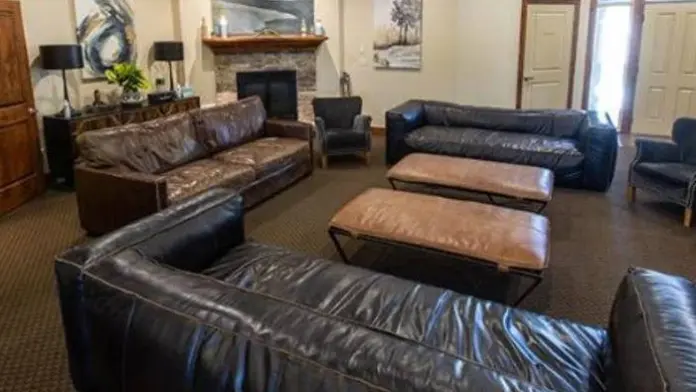
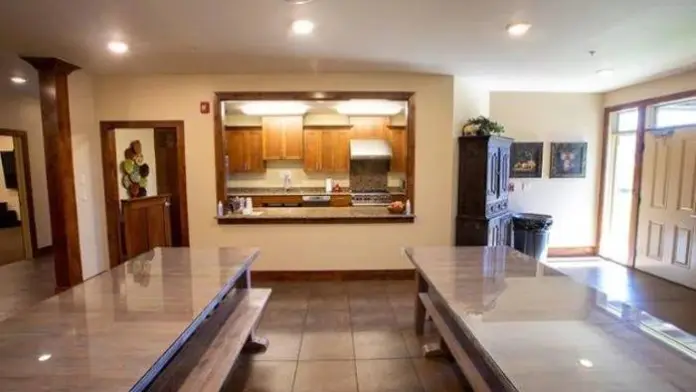
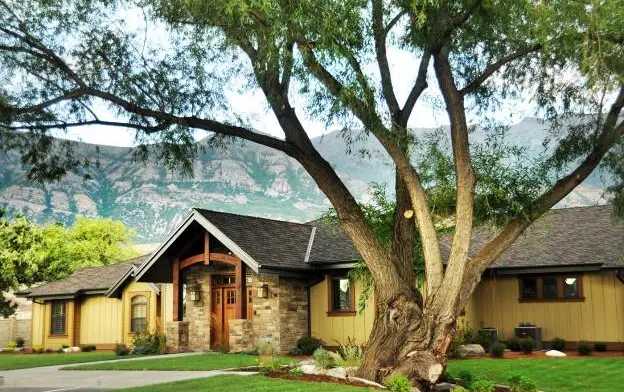
Location
Accepted Insurance
Other Forms of Payment
Private insurance refers to any kind of healthcare coverage that isn't from the state or federal government. This includes individual and family plans offered by an employer or purchased from the Insurance Marketplace. Every plan will have different requirements and out of pocket costs so be sure to get the full details before you start treatment.
Self-pay involves paying for treatment out of your own pocket. You can use savings or credit, get a personal loan, or receive help from family and friends to fund your treatment. If you don't have insurance or your insurance plan doesn't cover a specific program, self-pay can help ensure you still get the care you need.
Medicare is a federal program that provides health insurance for those 65 and older. It also serves people under 65 with chronic and disabling health challenges. To use Medicare for addiction treatment you need to find a program that accepts Medicare and is in network with your plan. Out of pocket costs and preauthorization requirements vary, so always check with your provider.
Addiction Treatments
Levels of Care
Treatments
The goal of treatment for alcoholism is abstinence. Those with poor social support, poor motivation, or psychiatric disorders tend to relapse within a few years of treatment. For these people, success is measured by longer periods of abstinence, reduced use of alcohol, better health, and improved social functioning. Recovery and Maintenance are usually based on 12 step programs and AA meetings.
When you enter a drug rehab in Utah, the process usually involves four stages: treatment initiation, early abstinence, maintaining abstinence, and advanced recovery. Treatment methods can rely on medications, counseling, or both, in either an outpatient or inpatient setting.
Many of those suffering from addiction also suffer from mental or emotional illnesses like schizophrenia, bipolar disorder, depression, or anxiety disorders. Rehab and other substance abuse facilities treating those with a dual diagnosis or co-occurring disorder administer psychiatric treatment to address the person's mental health issue in addition to drug and alcohol rehabilitation.
Opioid rehabs specialize in supporting those recovering from opioid addiction. They treat those suffering from addiction to illegal opioids like heroin, as well as prescription drugs like oxycodone. These centers typically combine both physical as well as mental and emotional support to help stop addiction. Physical support often includes medical detox and subsequent medical support (including medication), and mental support includes in-depth therapy to address the underlying causes of addiction.
Substance rehabs focus on helping individuals recover from substance abuse, including alcohol and drug addiction (both illegal and prescription drugs). They often include the opportunity to engage in both individual as well as group therapy.
Programs

Clinical Services
Cognitive Behavioral Therapy (CBT) is a therapy modality that focuses on the relationship between one's thoughts, feelings, and behaviors. It is used to establish and allow for healthy responses to thoughts and feelings (instead of unhealthy responses, like using drugs or alcohol). CBT has been proven effective for recovering addicts of all kinds, and is used to strengthen a patient's own self-awareness and ability to self-regulate. CBT allows individuals to monitor their own emotional state, become more adept at communicating with others, and manage stress without needing to engage in substance abuse.
Dialectical Behavior Therapy (DBT) is a modified form of Cognitive Behavioral Therapy (CBT), a treatment designed to help people understand and ultimately affect the relationship between their thoughts, feelings, and behaviors. DBT is often used for individuals who struggle with self-harm behaviors, such as self-mutilation (cutting) and suicidal thoughts, urges, or attempts. It has been proven clinically effective for those who struggle with out-of-control emotions and mental health illnesses like Borderline Personality Disorder.
Group therapy is any therapeutic work that happens in a group (not one-on-one). There are a number of different group therapy modalities, including support groups, experiential therapy, psycho-education, and more. Group therapy involves treatment as well as processing interaction between group members.
In individual therapy, a patient meets one-on-one with a trained psychologist or counselor. Therapy is a pivotal part of effective substance abuse treatment, as it often covers root causes of addiction, including challenges faced by the patient in their social, family, and work/school life.
Family Weekend is a two day series of meetings comprised of speakers, educational pieces, open discussion and group therapy. Family Weekend is held on a Friday and Saturday on a monthly basis. The personal involvement of family and loved ones is an essential and extremely important component in the recovery process. Monthly, on two consecutively specified days, adult family members are encouraged to join with their loved one and participate in “Family Weekend.” Family Weekend provides an educational and therapeutic setting to interact with the resident. The knowledge and experience gained by family and loved ones strengthens the support group after discharge and substantially compliments the likelihood of pro-longed sobriety. Make Family Weekend their most priority during their loved one’s length of stay. Every effort should be made to participate in this very important aspect of treatment. For those loved ones that may be unable to participate in Family Weekend there may be opportunities for family phone therapy sessions during the course of treatment.
Specialists trained in creative arts therapy can incorporate methods such as art, music, and writing therapy in your treatment program. These expressive methods may be combined with psychodynamic therapy and mindfulness based approaches.
Experiential therapy is a form of therapy in which clients are encouraged to surface and work through subconscious issues by engaging in real-time experiences. Experiential therapy departs from traditional talk therapy by involving the body, and having clients engage in activities, movements, and physical and emotional expression. This can involve role-play or using props (which can include other people). Experiential therapy can help people process trauma, memories, and emotion quickly, deeply, and in a lasting fashion, leading to substantial and impactful healing.
Amenities
-
Private Setting
-
Mountain Views
-
Yoga Studio
-
Hiking
Accreditations

The Joint Commission, formerly known as JCAHO, is a nonprofit organization that accredits rehab organizations and programs. Founded in 1951, the Joint Commision's mission is to improve the quality of patient care and demonstrating the quality of patient care.
Joint Commission Accreditation: Yes
Contact Information
145 South 1300 West
Pleasant Grove, UT 84062





